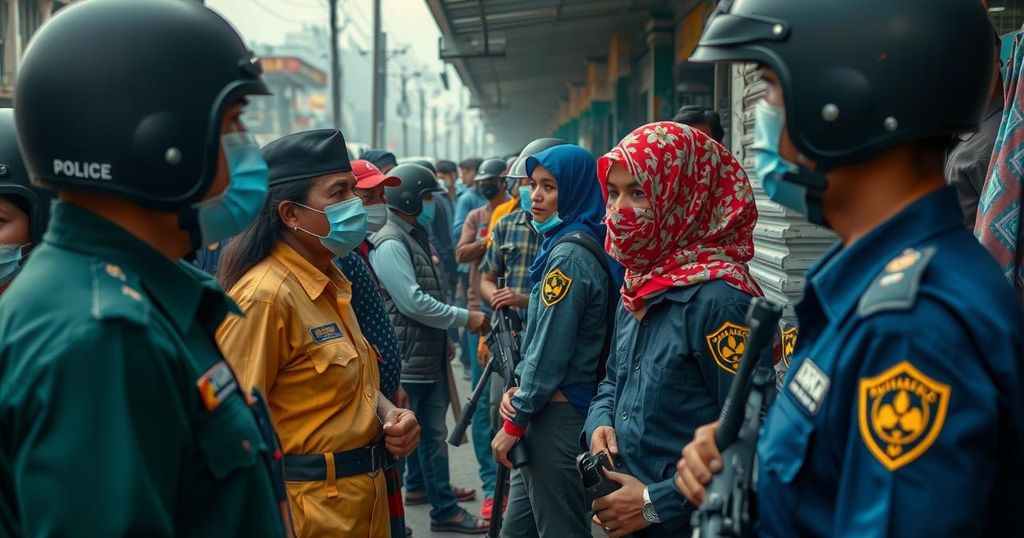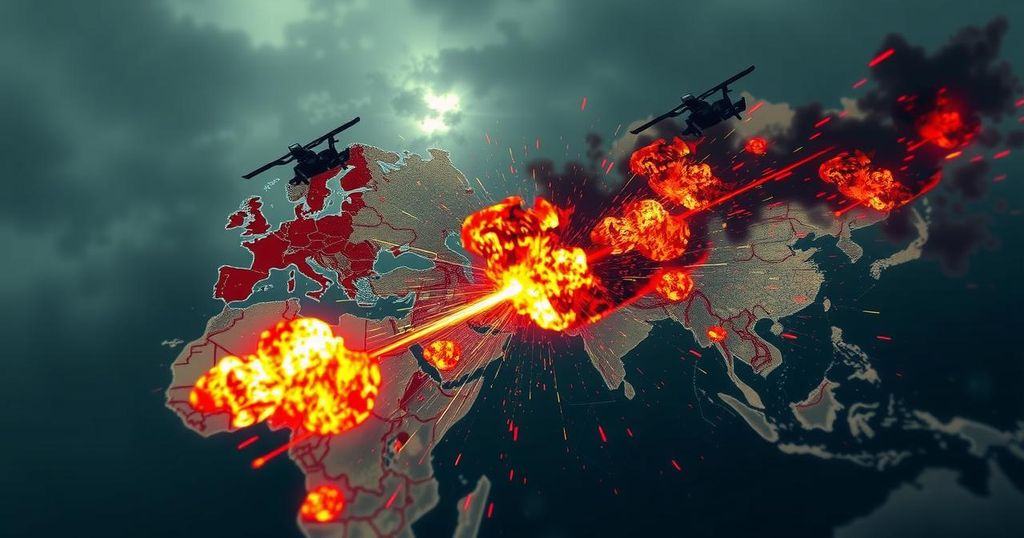Critical Analysis of Humanitarian Crises and Conflict in 2024
Summary
The year 2024 is proving to be fraught with challenges for humanitarian aid, as nearly 200 aid workers, mainly local hires, have been killed, signaling a serious escalation in violence against those seeking to assist conflict-affected populations. Various reports reveal alarming patterns of abuse, human rights violations, and escalating turmoil in regions such as Sudan, Haiti, and Lebanon, prompting urgent calls for enhanced international intervention and humanitarian efforts to address these ongoing crises.
In 2024, the international response to conflicts and humanitarian crises remains critically inadequate, with nearly 200 aid workers losing their lives, primarily local hires, accentuating the escalation of violence against those assisting vulnerable populations. The trends indicate that disregard for international humanitarian laws exacerbates risks in conflict regions. Historical perspectives on human nature, as discussed by war historian Paul Ham, reveal a profound transformation in understanding the psyche surrounding warfare. In Lebanon, the plight of displaced individuals caught in crossfire with Israel illustrates the urgent humanitarian needs that often go unnoticed. Sudan suffers from a devastating civil war, with calls for extraordinary humanitarian efforts to alleviate the crisis. Meanwhile, in Haiti, gang violence continues to claim innocent lives, with five children falling victim each week. The situation is dire in South Sudan, as the UN warns of an impending existential crisis amidst upcoming elections. Acknowledging this growing trend, humanitarian leaders stress the need for swift foreign intervention to authorize security measures, particularly in Haiti and Sudan, where starvation is being weaponized against civilians. Moreover, glaring human rights abuses against marginalized communities, such as trans women in Colombia and children in Sudan, underscore the urgent necessity for global awareness and action against systemic violence. Additionally, violence in Myanmar has led to alarming declines in vaccinations, which were primarily attributed to conflict. As global attention on such crises remains insufficient, organizations and governments are urged to prioritize humanitarian efforts and uphold human dignity in the face of warfare.
The increasing violence and complexity of conflicts in various regions, especially in developing countries, has placed immense pressure on humanitarian efforts. In 2024 alone, the casualties among aid workers signal a troubling trend of targeted attacks and disregard for their safety. The instability in regions such as Sudan, Lebanon, and Haiti draws attention to the challenges faced by civilians suffering the repercussions of conflict. Historical perspectives from experts further highlight the need for understanding the human condition in the context of war, which can inform more compassionate and effective responses. Alarmingly, the UN has pointed out the detrimental effects of such violence on public health initiatives, struggling to maintain vaccination programs amid such crises. Thus, this discourse surrounding the protection of human rights, effective humanitarian response, and accountability for violations is critically relevant in today’s geopolitical climate.
The data and reports from 2024 underscore a pressing need for enhanced global awareness and strategic humanitarian interventions to protect vulnerable populations caught in conflict. The significant loss of aid workers and the dire conditions faced by civilians in regions like Sudan and Haiti call for immediate action and adherence to international humanitarian standards. As experts continue to document and narrate these crises, it is essential for the international community to prioritize human dignity and safety in conflict-stricken areas, ensuring that humanitarian efforts are sufficiently supported and cherished amid the horrors of war.
Original Source: www.theguardian.com






Post Comment